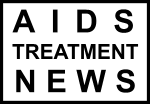NYTimes.com: "'This is very encouraging,' said Dr. Michel Sidibe, executive director of Unaids, the United Nations AIDS-fighting agency. 'It can be controlled by women, and put in 12 hours earlier, and that is empowering. They do not have to ask the man for permission to use it. And the cost of the gel is not high.'
In another piece of progress against AIDS, a separate, large study in Malawi sponsored by the World Bank, and made public on Sunday, found that if poor schoolgirls and their families received small monthly cash payments, the girls had sex later, less often and with fewer partners.
"A year and a half after the program started, they were less than half as likely to be infected with the AIDS or herpes viruses as girls whose families got no payments. The likelihood that the girls would turn to older men for sex, gifts and cash declined as the size of the payments from the program rose, suggesting the central role of extreme poverty in sexual choices. ...
"In the $400,000 trial in Malawi, 3,800 teenage girls and young women, ages 13 to 22, were randomly assigned to two groups. Half the girls received no cash payments. The parents of the other half were paid $4 to $10 a month, while those girls themselves got $1 to $5 a month.
"After 18 months, the H.I.V. prevalence among the girls who got the cash was 1.2 percent, compared to 3 percent for the others. “The program empowered these girls to make better choices,” said Berk Ozler, a senior economist with the World Bank’s Development Research Group."

0 comments:
Post a Comment